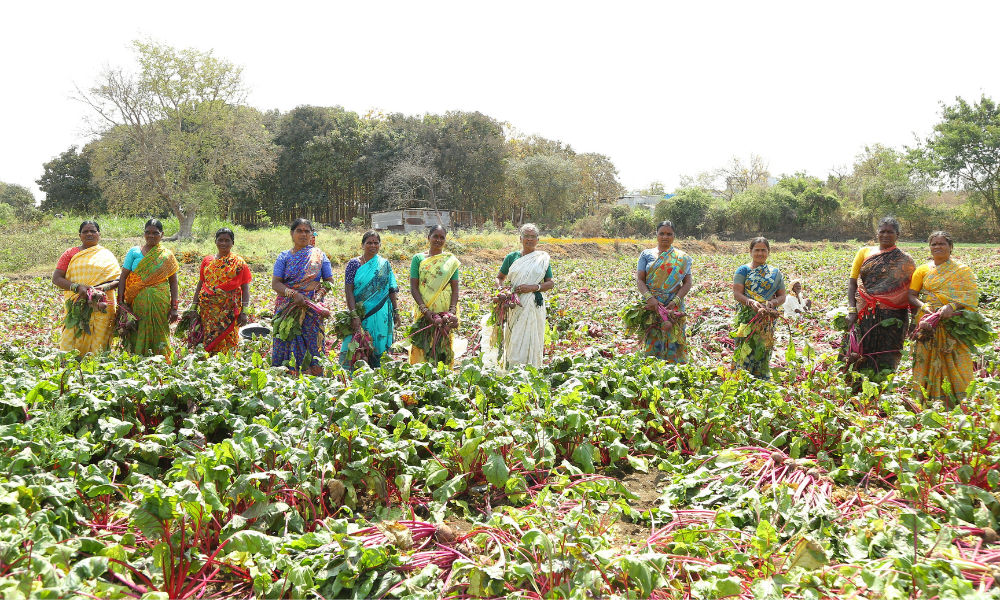Stopping Counterfeit Seeds From Taking Root
One of the largest problems within the agricultural industry is the prominence of counterfeit seeds, particularly in developing countries, where the public is less educated about the potential risks of fake products entering the market. In order to halt the spread of counterfeit seeds and create a sustainable farming system, we need to secure supply chains, train farmers on how to identify false packaging, and introduce new and more effective methods of anti-counterfeit identification and protection.
Unearthing The Truth Of Counterfeit Seed
When it comes to counterfeit seeds, illegal manufacturers have found devious ways to produce replicas of genuine products. Regular maize, for example, is often dyed to resemble industrially processed maize, resulting in farmers paying for seeds that won’t germinate. Seeds can also become contaminated by pollutants and chemicals, and criminals will even steal seed directly from farms to resell at lower prices.
It is common practice for counterfeiters to re-package lower-quality seeds in replica packaging, before being sold at a higher price. When these counterfeits yield poor results, it makes farmers unwilling to spend more money on expensive seeds, thus leading them to purchase cheaper, poorer quality seeds and continuing the cycle of counterfeit production.
The cost of seed is one of the largest expenses in farming, which is why counterfeit seeds can be so crippling. Some farmers use high doses of pesticides in order to counteract poor crop performance, which increases costs further, but this only leads to more environmental pollution and contamination of water supplies.
The Growing Problem Of Fake Seeds
Of course, it’s not just the UK that is affected by counterfeit seeds. Africa, India and China are particularly vulnerable to the problems caused by counterfeit seeds, since many of the markets farmers make purchases on are much less regulated than in Western countries. The World Bank estimates crop yields in sub-Saharan Africa average less than a fifth of their potential for maize, and less than one-third for rice, as a result of counterfeit seeds.
Countries like Uganda and Kenya have had long-standing issues with counterfeit agricultural goods. Between 1979-1980, fake insecticide was used to control a coffee disease in Kenya, which resulted in the entire crop being wiped out. Today, up to 30% of seed available to purchase on the Kenyan market is estimated to be fake, with the Kenya Association of Manufacturers (KAM) predicting that the country misses out on anywhere between $84 million and $490 million in revenue each year.
Rooting Out Counterfeit Seeds
Spotting counterfeit seeds can be tough, especially for farmers in developing countries. Thankfully, farmers across the globe are taking a stand against counterfeiters, and the effects are becoming more noticeable. Retailers, manufacturers and governments are taking action to help educate farmers on the dangers of counterfeits, and stricter enforcement of regulations and laws is helping to drive down the numbers of fake goods entering supply chains worldwide.
Sustainable farming methods can also help to combat the growing problem of counterfeit seeds, improving soil quality and reducing greenhouse gas emissions in the process. By adopting sustainable farming practices, farmers can potentially increase yields by up to 79% in developing countries, improving the ecosystems of agricultural areas for millions of people.
More and more products now feature anti-counterfeit solutions, such as QR codes, holograms and scratch labels, which is a step in the right direction. However, the best way to secure the agricultural industry from counterfeit seeds is to protect seeds and packaging with a 100% unbreakable solution. Fortunately, Quantum Base’s revolutionary new Q-ID® Optical technology can help secure supply chains and protect brands, manufacturers, distributors and farmers from the scourge of fake seeds.
If you would like to find out more about how Quantum Base is helping to create a future without fakes, please get in touch with one of our team today!




